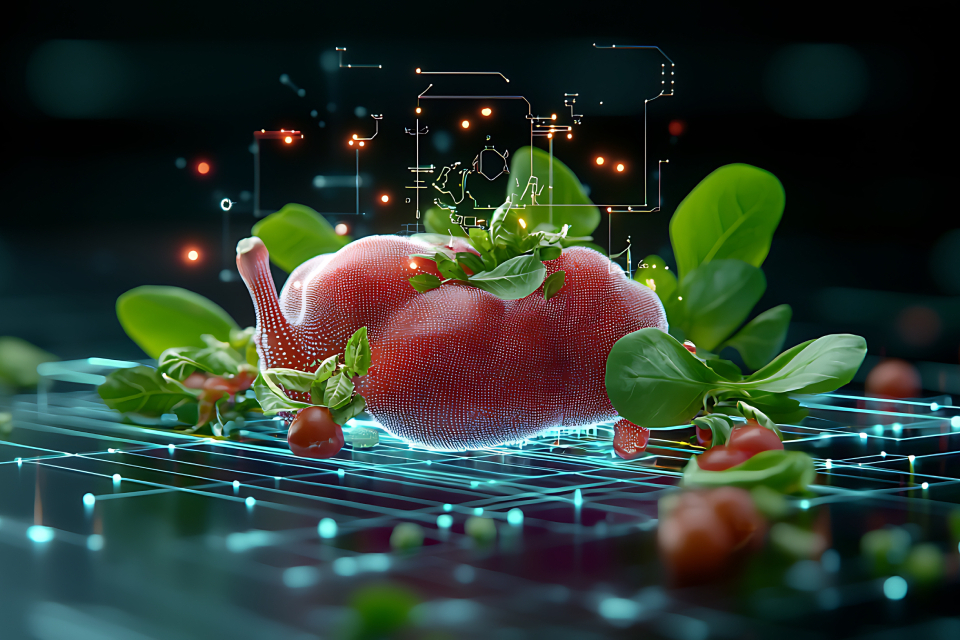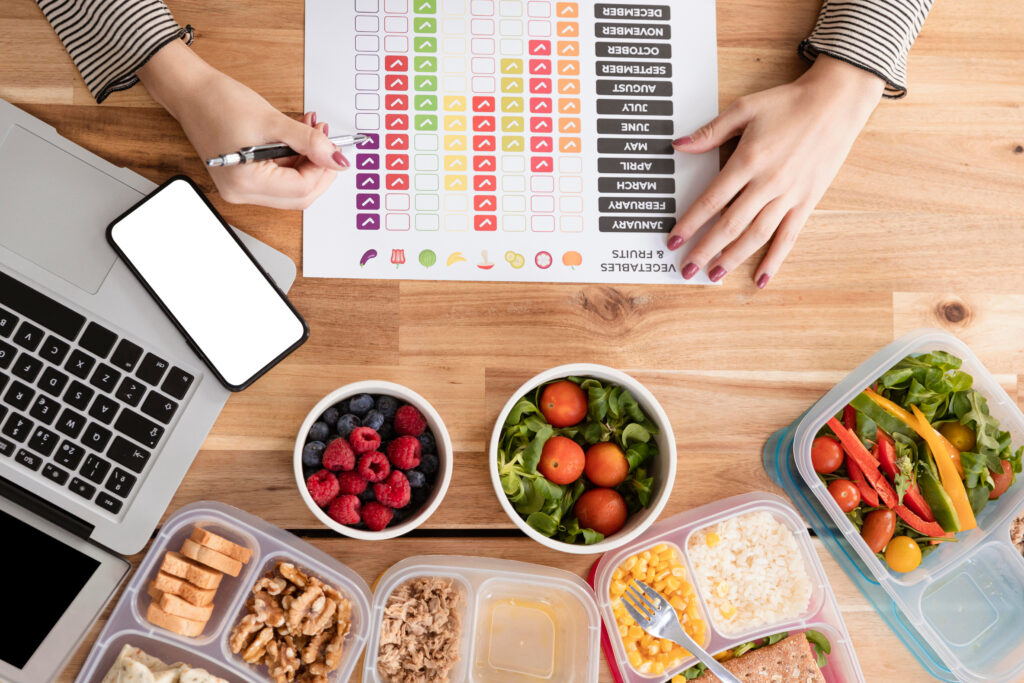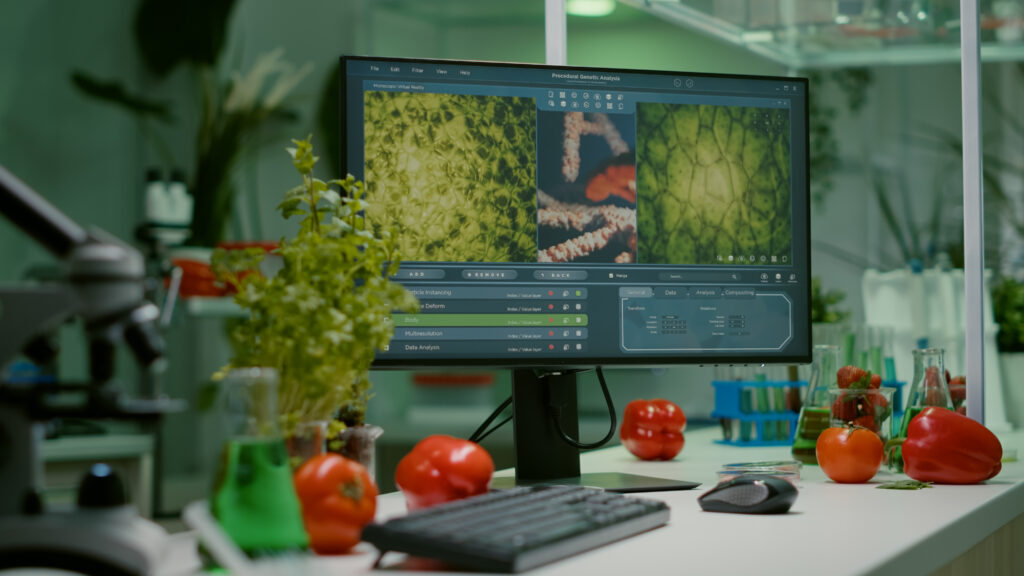New Apps and Devices for Personalized Diet Plans
Nutrition Meets Technology: Nutrition is one of the most fundamental elements of our health. What we eat affects not only our physical well-being but also our mental state and daily energy levels. In recent years, technology has revolutionized many areas of our lives, and nutrition is no exception. Thanks to new apps and devices, personalized diet plans have become more accessible than ever before.
Advances in artificial intelligence (AI), big data, and wearable technology now make it possible to track individual nutritional needs with precision and tailor plans to meet them. This article will explore the latest developments in nutrition and health technology, and how they help us live healthier and more mindful lives.
The Shift from One-Size-Fits-All Diets to Personalized Nutrition
For decades, most diet plans were built on generalized guidelines, such as the famous food pyramid or the 2,000-calorie-a-day recommendation. While helpful, these approaches often overlook the fact that every person reacts differently to food. Factors such as genes, metabolism, activity level, and health condition vary widely from person to person and play a crucial role in determining the optimal diet.
Thanks to advancements in technology, these individual differences can now be analyzed, allowing for personalized recommendations based on each person’s specific needs. The goal is to provide each individual with a nutrition plan tailored to their unique biological and physical requirements to optimize their health.
The Role of Wearables in Nutrition
Wearables, such as smartwatches and fitness trackers, have seen tremendous growth in recent years. Initially, these devices focused mainly on monitoring movement and sleep, but they have since evolved to include nutrition and health functionalities.
For example, the Apple Watch, in combination with the Apple Health app, collects comprehensive data on nutrition, calorie consumption, and nutrient intake. Users can input their meals directly into the app, which calculates how many calories they’ve burned throughout the day. Based on this data, the watch can offer personalized recommendations on how much food to eat and what types of nutrients to prioritize in order to meet fitness goals.
Similarly, brands like Garmin and Fitbit provide calorie tracking and personalized nutrition tips. These devices are smart enough to recognize eating patterns and suggest ways users can improve their diets to meet specific objectives, whether it’s weight loss, muscle gain, or maintaining a balanced diet.
AI-Powered Nutrition Apps for Personalized Diet Plans
The advancement of artificial intelligence (AI) in recent years has had a significant impact on the way we approach nutrition. AI-driven apps can now analyze a person’s eating habits, health data, and lifestyle to create customized nutrition plans that are uniquely tailored to individual needs.
One example is the app Nutrifix, which asks users about their goals—whether they aim to lose weight, build muscle, or maintain a certain health level. Based on the user’s responses, the app creates a personalized meal plan, analyzing daily caloric needs and recommending foods that meet specific nutritional requirements.
Another innovative app is Lumen, a small portable device that analyzes users’ metabolism through their breath. Based on this data, the app gives real-time recommendations on whether users should consume more carbohydrates, proteins, or fats in their next meal. This type of real-time feedback and tailored nutrition advice would have been unimaginable just a few years ago, showcasing the rapid advancement in this field.
DNA-Based Nutrition – The Potential of Genetic Testing
One of the most cutting-edge innovations in the field of nutrition science is the use of DNA tests to create tailored diet plans. The underlying concept is that our genes play a significant role in determining how our bodies respond to different foods and nutrients.
Companies like 23andMe and AncestryDNA offer genetic tests that provide insights into personal nutritional needs. These tests can reveal whether someone is likely to be lactose intolerant or genetically predisposed to gain weight more easily. Based on this information, individuals can receive customized diet plans that cater specifically to their body’s unique genetic makeup.
Another company, DNAfit, also offers personalized nutrition plans based on a person’s genetic profile. Their platform analyzes specific gene markers associated with nutrient absorption, metabolic rate, and health risks. By leveraging this data, DNAfit provides users with individualized diet recommendations, helping them make more informed decisions about what to eat.
Apps Focused on Specific Diets and Eating Lifestyles
In today’s world, many people follow specific diets or eating lifestyles for health, ethical, or religious reasons. There are a growing number of apps designed to cater to these specific dietary needs, offering guidance on how to meet nutritional goals while adhering to a particular eating style.
One of the most popular apps in this space is Yazio, which supports a wide range of diet options, including low-carb, ketogenic diets, and veganism. The app helps users plan their daily meals, track calories, and monitor their nutrient intake.
For individuals with specific health requirements, such as diabetics, apps like MySugr have proven invaluable. MySugr tracks blood sugar levels and offers nutritional tips to help users keep their glucose levels stable. Many of these apps also allow users to share their data with healthcare professionals, promoting better collaboration and allowing for more precise adjustments to their diet plans.
Food-Scanning Apps: Taking Control of Nutrient Intake
Another exciting innovation in personalized nutrition comes in the form of food-scanning apps. These apps allow users to scan the barcode of a food item and instantly receive detailed information about its nutritional content.
One well-known example is MyFitnessPal, which boasts a vast database of foods and enables users to scan or manually input their meals. The app calculates nutrient intake and suggests improvements for a healthier diet. Such tools are not only helpful for fitness enthusiasts but also for people with specific health conditions or dietary restrictions.
A more cutting-edge example is Foodvisor, an app that uses image recognition technology to analyze the calorie and nutrient content of meals based on photographs. Users simply take a picture of their meal, and the app provides information on calories, fats, proteins, and carbohydrates. This level of convenience allows users to have greater control over their diet and makes it easier to reach health goals.
The Power of Big Data in Nutrition Technology
Combining big data with nutrition has the potential to revolutionize how we approach personalized diets. By analyzing vast amounts of health data, algorithms can identify patterns and make highly specific nutrition plans for each user.
A popular example of this approach is Noom, an app designed for weight loss. Noom utilizes big data to analyze user behavior and make personalized recommendations. By examining users’ eating habits, activity levels, and other health metrics, Noom identifies what works for a particular individual and makes adjustments accordingly.
Big data also plays a significant role in managing food intolerances and allergies. Apps like Fig enable users to input their food allergies or intolerances and then suggest appropriate foods and recipes that accommodate those restrictions. This level of personalization is crucial for people with specific health conditions, as it helps them navigate their dietary needs safely and effectively.
Combining Mental Health with Nutrition: A Holistic Approach
Increasingly, nutrition and mental health are being recognized as interconnected. New apps and devices are emerging that integrate both physical and mental well-being into one holistic approach. This marks a shift towards addressing diet as more than just a tool for physical fitness but as a critical component of emotional health.
One such app is Care/of, which offers personalized vitamin plans. The app asks users to complete a questionnaire about their lifestyle, diet, and mental health concerns. Based on the responses, it recommends a customized supplement regimen designed to enhance both mental clarity and physical well-being. As more research highlights the relationship between nutrition and mental health, we can expect to see even more innovations in this area.
The Future of Personalized Nutrition and Technology
The rapid evolution of technology has radically transformed how we approach nutrition. From wearables that track our daily calorie intake to DNA tests that reveal our unique nutritional needs, the future of diet is highly personalized and based on cutting-edge scientific insights.
The use of AI, big data, and genomics makes it easier than ever to create diet plans tailored to individual goals and biological factors. The era of one-size-fits-all diets is over. Instead, we are entering a new era of personalized nutrition where each individual receives recommendations designed specifically for them based on the latest scientific and technological advances.
With the growing array of apps and devices available today, people have more tools at their disposal than ever before to take control of their health. From weight loss to managing chronic conditions, nutrition technology is empowering individuals to live healthier, more balanced lives. As we look to the future, it is clear that personalized nutrition will continue to evolve, offering even more sophisticated solutions to meet the diverse needs of individuals around the globe.
The advancements in nutrition technology are only the beginning of what promises to be a revolution in how we think about food, health, and well-being. Whether it’s through AI, genetics, or wearables, the possibilities are endless, and the future of personalized nutrition looks incredibly promising.
Conclusion
In the world of personalized nutrition, new technologies such as AI, genomics, and wearables are revolutionizing how we plan our diets. From tailored dietary recommendations to smart apps, the future of nutrition technology is promising. Visit Blogmasterone.com for the latest news and more exciting developments!




